Last Updated on July 30, 2021
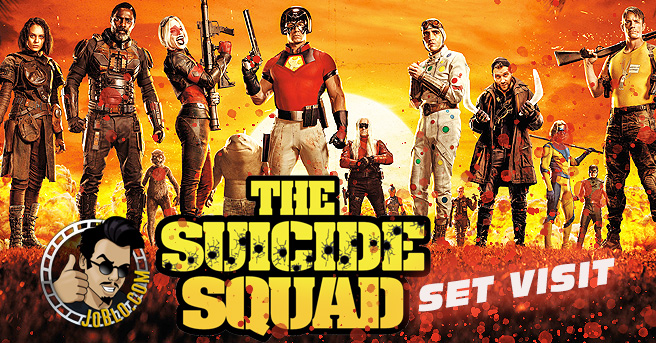
While visiting the set of The Suicide Squad in Atlanta, GA way back in 2019, we didn't have the opportunity to sit with writer/director James Gunn for a significant amount of time as they were filming some pretty intense scenes for the day. However, Gunn did stop by the war room to chat with us briefly and share some insight into his vision for a more grounded take on the DC Comics property, The Suicide Squad. In addition, we did get a chance to sit down with Producer Peter Safran for a good amount of time and pick his brain on the development, shooting, and intention behind this "non-sequel" that serves as a kind of 1970's style war-film that pulls closely from original comic creator John Ostrander's work on the core ideals of this team dynamic.
Below is the brief back-and-forth with Gunn and following that is Safran's lengthy details into the making of the film.
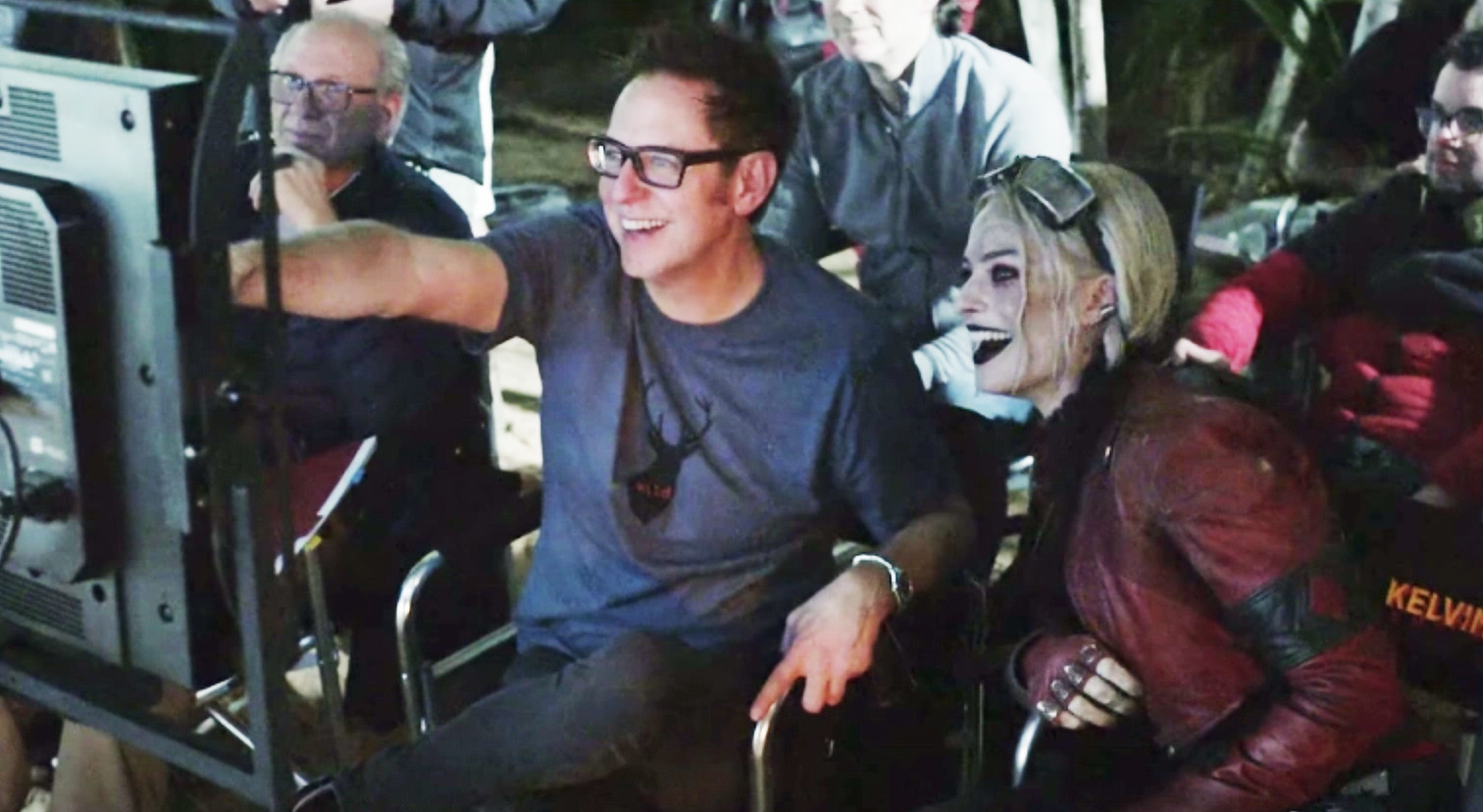
JAMES GUNN: Yeah, no, it's been really the most fun I've ever had in my life on a movie. Although, today is stressful.
QUESTION: Can you say anything about your story? Because I do love the deep cuts, particularly also nerdy inclusion of Ratcatcher 2.
JAMES GUNN: Yeah. So I'm a huge fan of the original John Ostrander run of Suicide Squad, which he created the whole Dirty Dozen as city super-villains team. And I don't think that it's so much as an interpretation of what he wrote, but I do think of it as a continuation of what he did. So if the series was still being told in his style today and R-rated, then it would be this movie. I think it's very much in line with that and that's what he did. When John, who actually has a little cameo in the film, when he was first putting this team together, he was only able to get certain characters and it really was for him, the fun of taking these characters that weren't as well known and developing them in a real way.
To me, that's one of the greatest superhero runs of any comic series. And to keep that sense of it being a caper film, a war caper film, a lot of the film is within the genre of the war caper film, which is not really something that's existed for a long time. But in the sixties, late sixties with films like Dirty Dozen and Kelly's Heroes and Where Eagles Dare, that was a real vibrant genre and one of the big genres in the world and you kind of take that engine and then add the fun of Suicide Squad to it.
QUESTION: When you were invited to come in and play in the DC Warner Bros sandbox, what were you most excited about?
JAMES GUNN: Basically DC came and said, "Hey, what do you want to do?" Anything? And at first I really honestly didn't think it was going to be Suicide Squad, but I was playing with a few different ideas of a few different DC properties and this was the one that just took off. I just fell in love with this particular story that we're telling right now. And I fell in love with some of the characters and the way we could do it. It's not a super hero movie, obviously it's a super villain film, but to be able to tell a movie like this in a completely different way. And in a lot of ways, when I came in to do Guardians and being able to do a space opera in a totally different way, this is my way to do a war film in a completely different way.
And I thought it was something that I could do. And it both surprised people by giving them something completely different than what they expect, like we did with Guardians. People saw that trailer for the first time with these weird characters in prison and what was going on with them, to be able to do something like that again, where people might be expecting it to be like Guardians. They might be expecting it to be like the first Suicide Squad. They might be expecting it to be like, whatever, but it's not like any of those things.
QUESTION: Do you think that's the main thing that makes this a completely separate thing from Guardians, because I feel like the vibe I'm getting it almost feels like it's just going to be DCs Guardians of the Galaxy. Because [inaudible 00:03:32] visually, you want to do it separately.
JAMES GUNN: I mean, it's a much, much, much rougher film than Guardians of the Galaxy. Everything is almost completely practical. The biggest sets I've run almost any film, ever more visual. I was able to take all of the heads of departments that I've used on other films and just do a best of, and Dan Sudek, who's doing our special effects, what I was saying this morning, he's doing more special effects, more live special effects in this film than all of the Marvel movies he's ever done combined, which is every single Marvel movie that was shot in Atlanta. And so it's just a much more grounded, you know, darker film. Gorier.
JAMES GUNN: It's gorier.
QUESTION: Is there anything that this R-rating is going to allow you to do that you couldn't do on the Guardians?
JAMES GUNN: It just allows me to do anything we want, but it really is a more grounded story. It's a sad story. And one of the most fun things is I think at the end of the day, even though we do kill Guardians of the Galaxy, we kill some of them, but in this movie, it really is about, you don't know who's going to get killed. And I think with the Guardians, you start out sort of knowing these are guys that may have different problems, but at the end of the day, they're all really good people. And that isn't the case with this, it's a much more complicated story. Some of these characters may end up being good. Some of them are definitely not good. And some of them, most of them are somewhere in between with different shades of gray and that moral drama, that moral play. The fact that you don't know anything that's going to happen. I don't think most people think that Star Lord's head is going to explode in the middle of the movie, but any of these characters, their heads could explode in the middle of the movie. And so it's that unknown, that being on edge, that really not knowing what's going to happen is much different than the Guardians.
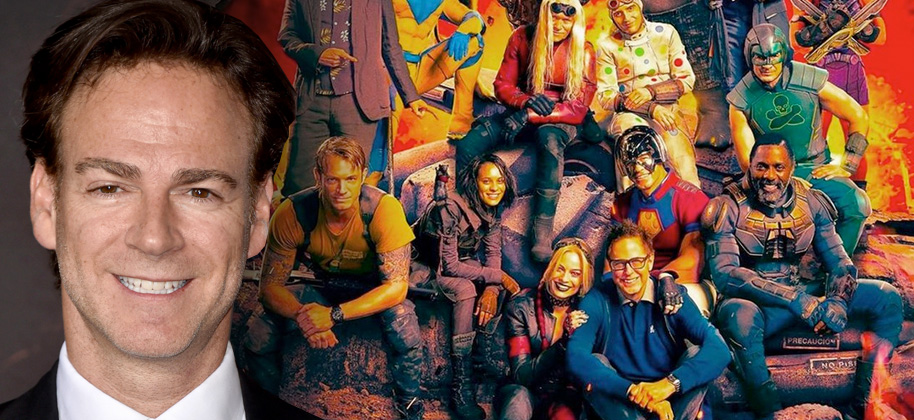
Producer Peter Safran has been instrumental in ushering in some of DC's latest big hits, including Aquaman and Shazam! and now brings his guidance to The Suicide Squad. Safran had a lot to say about the film, including the choice to hire Gunn to direct, how the "non-sequel" relates to the 2016 film from David Ayer, why the R-rating was needed and why you shouldn't get too attached to any one character. It's a lengthy read and full of interesting and honest insight about the film. Safran is very no-nonsense and to the point, while elaborating in detail about many aspects of the film. He's one of the more interesting producers working today and there's much to be learned from his back-and-forth. He's joined by Production Designer Beth Mickle, who also shares some info on the sets, costumes and overall look of the film as well.
QUESTION: So with a slate of possible projects… You guys could have moved forward doing a lot of characters you could have explored, what brought you guys back to Suicide Squad as an idea?
PETER SAFRAN: Well, I don't think it was what brought us back to Suicide Squad, I think it was driven in large part by James Gunn's sudden availability that started July of last year. And I always felt like it's an incredible property and when I talked to James about it, his initial reaction was, "I'm not sure. Let me think about it." Thought about it a little bit and, mind you, it was just like, listen, who's better to bring together a disparate group of outsiders on a mission? James Gunn. And that was my pitch to him and his ultimate reaction was, "Ask Warner Brothers if I have to be bound by anything that has occurred before, any characters or anything off-base, or can I just start from scratch. And the reaction was, "We want Suicide Squad from the mind of James Gunn. That's what it is. So not a sequel. It's not a reboot. It's just James Gunn's The Suicide Squad."
That's really what drove it, and he got inspired and had an initial idea and pitch and we came in and pitched it Toby and Walter September 27th of 2018, and we started shooting September 23rd of 2019. And that's from pitch to starting to shoot, it was less than a year because he had absolute clarity of vision of the movie that he wanted to make. The idea for him was, and I'm sure he'll tell you this, himself, it's a 1970s war movie, war caper, melded with the characters and comedy that James Gunn brings to everything that he does. So that was really the inspiration behind it.
PETER SAFRAN: I think everybody loves Suicide Squad as a property, in particularly the John Ostrander run and we all like to think, what would those characters that Ostrander created be doing today if her were writing it? And this is what that movie is.
QUESTION: So what are those characters doing today?
PETER SAFRAN: It's a good question. Obviously, you can see many of the characters that are intrinsically involved in the movie, and it is a classic Amanda Waller putting together in this case, a couple of groups and sending them off on a mission. I think the part that we can really talk to you about is… It involves Jotunheim, and they're sent to basically destroy Jotunheim. There's been a military coup on the island of Corto Maltese and the Herrera family who've ruled as dictators for 100 years have been overthrown by this military coup. And Amanda Waller wants to make sure that Jotunheim, which is a scientific research prison, that it is destroyed before the military coup realizes what's inside it, before the leaders of the coup realize what's inside it.
And that's really what the story of the movie is. So it's a classic war mission movie. It's Dirty Dozen. It's Guardians of Galaxy.
QUESTION: How does this movie bridge from the first one? How does this relate to the first movie?
PETER SAFRAN: We don't address it.
QUESTION: But the characters, obviously, react and boomerang partly.
PETER SAFRAN: Sure.
QUESTION: They'll know each other and all that?
PETER SAFRAN: Yes. That is correct. We just don't address it any tangible form. Yes, they're the characters, the actors that played them in the first movie. But we really wanted to make sure that this stands on its own two feet. So again, it's why you can't really call it… It's not a sequel, but there are some characters that were in the first movie, right? So it's not really a full reboot either. So we just call it James Gunn's The Suicide Squad.
QUESTION: Did that happen? The stuff in the first movie, did that-
PETER SAFRAN: We don't address it.
QUESTION: Was the decision to use somewhat more obscure characters from James, or was that always the plan?
PETER SAFRAN: Hundred percent from James. There was no plan before James. There were other writers that had worked on various Suicide Squad scripts over the years, but there was not… This was starting from ground zero, starting from scratch. There was no plan until James said, "That's a movie I want to go make." And then all the characters that he selected were just characters that he was a fan of and wanted to play with. I think, in typical fashion for James, he picks more obscure characters. Guaradians of Galaxy, they were relatively obscure characters, as well, but he liked the idea of being able to take these characters and imbue them with whatever characters he really wanted, or characteristics that he really wanted to play with. And they're great characters that he brings tremendous humanity and heart and humor, to characters that most of the public will know very little about.
QUESTION: When James tweeted the cast list he said, "Don't get attached." What does that mean for a lot of the characters?
PETER SAFRAN: Suicide Squad, my friend. People are going to die. That's what happens.
QUESTION: On that note actually, Idris Elba is Vigilante [although we now know that was a ruse and he is playing Bloodsport]. In the original comics it ends with him killing himself.
PETER SAFRAN: We're not… Listen, yeah. We'll see. I don't want to spoil it for you guys, in terms of who lives and who dies, obviously. But I think you will be surprised, and the audience will be surprised by some of the choices that James has made.
QUESTION: Is there any thread connecting Harley Quinn to the Birds of Prey film that's coming out, since they're coming out consecutive years?
PETER SAFRAN: Not really. No. It's very much a standalone film.
QUESTION: Can you talk about the premiere? Are you guys approaching this as a PG-13 or is there room to wiggle, especially after the success of Joker?
PETER SAFRAN: Yeah. It's an R rated movie.
QUESTION: What'll make it R rated?
PETER SAFRAN: James Gunn. His vision for it. Those movies that it's somewhat based on, those 1970s war movies, those are hardcore movies. So I think it's a lot of fun for James to be able to flex some of those muscles that can't do on a PG-13 Guardian's movie. He's pretty hardcore with it.
QUESTION: You said you really feel strongly about the value of the brand, of the franchise potential. What is it about The Suicide Squad that seems to have something special, and outsider almost as a property, too?
PETER SAFRAN: Well, I think you love the idea of a group of theoretically expendable individuals that are brought together on a mission, and the idea of the squad is that they are truly… There's deniability and their expendable. So you never know who's going to live and who's going to die. They get thrown in some great circumstances and, again, Ostrander really did an incredible job building out a huge basis for these guys. So it's a fun way to put together a squad, right?
QUESTION: Who's basically the leader? You have four de facto dominant personalities it seems like. Peacemaker, you've Harley, and then Rick Flag who's the main guy. But who's in charge?
PETER SAFRAN: Again, I don't want to throw out any spoilers, but there are at different times, different characters who take a leadership role.
QUESTION: Was there a period after the first Suicide Squad that got very passionate responses from people, but was really successful from a box office point of view? Was there a period there of stepping back and trying to figure out what worked and what didn't?
PETER SAFRAN: Well, I wasn't involved in the first movie and I wasn't involved with any of the development they did, post that, untl we got James on board. So I'm sure that they spent a lot of time, The movie was incredibly successful. It was polarizing, to say the least, but clearly there was an idea of, how do we continue with this property? I'm sure they tried to analyize what worked and what didn't work with it, because it was really commercially successful, although it was a troubled production, because I gather that there was a real difference of opinion between the director and the studio that emerged through production and through post. And I'm sure you guys probably know a lot more about it because you covered it at the time.
QUESTION: You have an onslaught of villains. Do you have any heroes? Any classic D. C. Heroes or did anybody in that vein make an appearance in the movie?
PETER SAFRAN: It's mostly these guys.
QUESTION: Given that there are a couple of characters who weren't in the original film and this is supposed to stand on its own, what were the aspects of the recurring characters that you really wanted to elevate to make them stand out as being definitively their own takes in this film, aside from the first Suicide Squad?
PETER SAFRAN: Well, I think that what really distinguishes them from whoever they were in the first movie is James' writing, the way he writes these characters. Again, he was not beholden to anything that existed from the first film so he really got to give his version of: this is what Rick Flag would be. This is what Harley Quinn would be. This is who Boomer would be. So everything from dialogue, back story, wardrobe, it's all just whatever James felt best suited these particular characters.
QUESTION: You've had a lot of success with Aquaman and Shazam!, with making these movies that are part of the D. C. Universe that had already been established but aren't terribly beholden to it. So what are the guidelines now, and what kind of things do you think suicide squad puts in place for future efforts-
PETER SAFRAN: I think Suicide Squad very much is in line with what we did on Aqua Man and Shazam! in the sense that the ideas make a great standalone movie. Don't worry about how it fits in any broader universe. You know that's obviously what we did with Aqua Man and with Shazam! That's what we're doing here. We're just making a great movie, we hope. But that's the focus. It doesn't have to live within some broader universe automatically. It's something that if you go back, I think, James probably said years ago. He was quoted… Whenever he was talking about building universes, the Monster University at Universal or this univ… And he was always, like, "Just make a good movie. Make a good movie, and if it merits being built out into something more than that, then you'll figure out a way to do it. But you don't have to have the preconceived idea of how it all fits together as you make that first movie. So for us, it's very much about, just go make one great movie.
BETH MICKLE (Production Designer):
Yeah. I think on Guardians when James and I first spoke about this, and I was actually involved with Guardians 3 initially, and the same idea applied for that. I think they didn't enjoy their experience in Guardians 2 because so much of it was against blue screen and the actors had nothing to react to, and he had no sense in the space of where they were at any given point. And you hear that a lot from actors and unfortunately these giant franchise movies have gone the way of everything becomes blue screen, all the way down to costumes and the vendors, become CGI creations. And it does get away from what we all got into the film industry to do a little bit. You can do amazing things with it now and make incredible worlds you could never do before, but there is a little bit of luster lost by having it all go to visual effects. So James' mandate was, we want to do as much in camera and build as much as we possibly can-
So I think you guys are doing a set tour after this, maybe. You'll see… So the building that Peter referenced, Jotunheim, where very much the movie takes place. It's an old Nazi fortress that's on this mythical island, Corto Maltese in South America. So you'll see at the set, we built literally three football fields of a set and that's so unusual in this day and age. You just never do that. And it was because we wanted to have real rubble behind them in the battle sequences, and we wanted to see the building that they're attacking. So for that scene to be existing in a film today is just highly unusual. And we've done that set and then a dozen others of that scale, so it's incredible.
PETER SAFRAN: The opener of our movie, it's basically Saving Private Ryan. It's our team landing on a beach in a big battle and there's got to be water. There's got to be sand, a pond. It's supposed to take place on Corto Maltese. So we built a beach on the backlot, here that's 260 feet across, giant tank, wave machines, thousands of trees. This is what Beth and her team built. And we shot there for the first 10 days of shooting where it was Saving Private Ryan at night, on this beach, explosions and helicopters and the whole thing. But we built it because… And again, you could have done it in a pure blue screen environment, frankly, but it just feels so real for the actors to be running through the sand, hide behind big boulders, swimming in from the tank onto the beach, all that stuff. You feel it when you see it. It looks absolutely extraordinary. So it's been a really big build and Beth and her team have done an extraordinary job creating these looks that James had in his mind.
BETH MICKLE (Production Designer):
Just one extension onto that point. I think, in the vein of trying to get everything in camera, physically, as much as we can, I think it also really lends to the overall style of the movie that James wanted to make which… And I think everybody will be really blown away by it. I think it's highly original. It's a very naturalistic film and, like Peter said, it's a war film, but it feels like Platoon,and Saving Private Ryan, and Black Hawk Down, where you're literally in the boat with them arriving on the beach from, Saving Private Ryan, with bullets whizzing past you and running through the sand with bullets hitting the sand and jungle leaves hitting your face as they race through. And that's where the limitations of CGI worlds really do come into play because you just don't get that same sort of interaction with sand flying back and hitting people, and them coming up from the water. And I really think you can tell when it's not physically there. So in James' mandate to try to make this as naturalistic, gritty, dirty, rough movie that we're all in the midst of a battle with them, the only way we could really do that with all these sets is to have them standing physically.
QUESTION: Two-part question. One is, is the whole movie set on Corto Maltese-
PETER SAFRAN: No.
QUESTION: … or are there other locations?
PETER SAFRAN: Other locations, too.
QUESTION: And are there any references or allusions to Joker or Harley's past within this movie?
PETER SAFRAN: No. There are not.
QUESTION: Can you say what the other locations were?
PETER SAFRAN: Well, there are some locations, just Belle Rev and all that.
QUESTION: You mentioned the military coup aspect of it. Is there a place or a person who emerges as the specific antagonist of this movie?
PETER SAFRAN: Well, the leader of the freedom fighters, the military coup revolution is President Luna. So he is initially our guy that they have to come take down.
QUESTION: Who does Taika [Waititi] play?
PETER SAFRAN: That, I got to ask James if I can actually reveal it. He might be happy to do it, because we haven't specifically been talking about… I mean, obviously, you see all these guys, but the Taika thing's been hidden, so… He plays Hitler.
BETH MICKLE (Production Designer): In our Nazi tower.
PETER SAFRAN: We've taken his character from Jojo Rabit and I think you guys are going to really enjoy the crossover. When we talk about building a universe, that's what it is. It's the Jojo Rabit Suicide Squad universe. You're going to like it.
QUESTION: You go from pitch to shooting in a year, which is a ridiculously short window.
PETER SAFRAN: Particularly for a movie of this scale.
QUESTION: Right. So then, can you just talk about the casting process in terms of a) convincing the people who played the roles to come back under a new director, and then b) recruiting new people like Idris, like and like John Cena, that you must have gotten really quickly. Can you just talk about that process?
PETER SAFRAN: Sure. Well, first of all, there was no persuasion needed for the char… I mean everybody wanted to come back. It was more about me having to let agents down very gently that their clients weren't coming back for the movie because everybody wanted to be part of it. I mean, James is a tremendous talent magnet. Particularly, just as a writer-director, they know that he does something special. He brings a unique tone and vision to what he does. So everybody wanted to be part of it. That was easy for the actors coming back, and we're obviously thrilled to have them. Who's better than Viola Davis, and Margot. Their all incredible.
And then, in terms of the other casting, because a lot of these characters are not particularly well known, so we had a lot of latitude about who we wanted cast. So there were certain characters that we knew we wanted to discover. People for Ratcatcher 2. We did a super wide, just a really world-wide search for… We wanted to find a new actor that people were not familiar with, and we narrowed it down to three women and we brought them all here to screen test, and Daniella, she just blew us away. We loved her. She's been incredible. She's never shot outside of Portugal before and she'd never done a movie and she's on her first day on screen with Idris, Cena, and everybody like that and she's been amazing. So for all the characters… Peacemanker, we knew, had to have a certain feel, look. Peacemaker is a guy that, all American kind of guy who… He's a fascinating character. It's all about peace, and as he says in the movie, it doesn't matter how many men, women and children he has to kill to keep the peace. That's what he will do to keep the peace.
And we were all Cena fans, mostly from stuff that was not action related at all. It was all from Trainwreck and things like that, or Blockers. He's a funny guy. It was easy. Once we sent any of these actors… I'm just trying to think. It was so easy. We just sent them the script and the moment they got on the phone with James or met with James in person, it was just such breeze. They loved what he wanted to do with the movie, so it actually went really quickly and the vast bulk of these people are the very first people we went to. And of course, there are some friends of James, right? So you all knew Rooker was going to be in the movie, and Nathan Filion and guys like that were inevitable.
QUESTION: You said that everybody wanted to come back but Will Smith is not back and I know there was confusion and misinformation when news first broke about Idris' casting, about who he was playing.
PETER SAFRAN: Right.
QUESTION: Was Deadshot ever supposed to be in this movie?
PETER SAFRAN: We discussed it, but it was… I think the will of it all was really more of a schedule thing than anything else. We knew we had to start shooting in September because, frankly, we knew probably earlier than other people did that James was going to come back and do Guardians. So it was really important that we started shooting when we started shooting and Will wasn't available, and that kind of made it easier all around. What are you going to do? He's not available. So it's also nice to, frankly, help separate it from the first movie, I think, in a greater fashion. What do you guys think?
QUESTION: Initially, though, was this character reading the Squad in that central piece concept or would that have been Deadshot?
PETER SAFRAN: Could have been.
QUESTION: Are you in contact with John Ostrander…
PETER SAFRAN: Yes. I can tell you that he's actually been on set.
QUESTION: Is he cameo?
PETER SAFRAN: But, yeah he came. It was super cool, actually, having him here. It waws great. And he just loved what James was doing with his characters. So it was kind of a fanboy, geek out situation. So it was great.
QUESTION: You talked about how James likes to do as much practical as possible. He also likes to bring things that are not human into his movies. One of those things is King Shark. Can you talk about how that's been put together on the set?
PETER SAFRAN: And Weasel.
QUESTION: Yeah, and Weasel. I walked into the room with King Shark and I was like, "Oh, shit. That looks awesome." So how are you guys bringing that to life on set? What do you expect the reaction to be?
PETER SAFRAN: So we have an actor, 6 foot 7 or 8, who basically takes up the space that King Shark would be in. And we'll, obviously, replace him with King Shark.
QUESTION: How big will be big?
PETER SAFRAN: He's about that size. That's why we cast that actor to portray it. Yeah. He's huge, but a great character. And the same way James did with Rocket and even more so with Groot, he's imbued him with such character. People are going to just fall inlove with King Shark. They're going to love this crazy creature that is King Shark. He's just got a personality to him.
BETH MICKLE (Production Designer): Another thing I'll just add this one last, sorry, this one last thing with King Shark and with the Weasel. It's a neat note that also separates this film. One of James' mandates from the beginning was, he didn't want to sensationalize any of these things or make these things appear really fantastical and really extraordinary. He just wants to treat them in a very ordinary way. And so whereas, in Guardians, Groot is this big magical thing and he casts these beautical sparkles, and he's this whole fantastical creature, he just wants King Shark just dirty and dusty, just waking down the streets of this sunbleached island and you're not really paying attention and it's just part of everyday life. And as James said, it's as common as your toaster on your counter. So very much of that went into the thoughts of the design of bringing these characters to life.
PETER SAFRAN: Yeah.
BETH MICKLE (Production Designer): That's what I think is going to, also, make this a very original superhero film. That's how we're treating this things. We're not trying to make a big fantasy of it all.
PETER SAFRAN: But it was fun. In the design of King Shark, if you look back in the comics, in some he's a hammerhead, in some he's a great white. So we're sitting there with all these designs early on. We're like, "I don't know if it should be a hammerhead. I don't know. It's easier to eat somebody if he's a great white than if he's a…" It was just hilarious conversations that revolve around what is King Shark supposed to look like.
QUESTION: Have you decided who's going to voice King Shark and Weasel?
PETER SAFRAN: We have not. Weasel, yes. Weasel, we have, King Shark, no. [update: We now know that it is Sylvester Stallone]
QUESTION: Who's voicing Weasel?
PETER SAFRAN: Sean Gunn.
QUESTION: You said this is very much like a war film.
PETER SAFRAN: Yeah.
QUESTION: James also has a very, a really fun, twisted humor to it, that he's brought to his other films-
PETER SAFRAN: Yes.
QUESTION: This would, being a rated R film, is that something that's also a big part of this, is the comedy?
PETER SAFRAN: Absolutely. It really is. It's very much that amalgamation of Dirty Dozen and Guardian 2 Galaxy. It is incredibly funny with great character comedy. It's based in the characters he's created. So it's got great dialogue comedy. It's got great situational comedy. It's got hilarious physical comedy. And it's all tied to the action and the mission that these guys are on. So people will not be missing comedy in this movie. But it's also a really big action film.
QUESTION: Is he operating on a soundtrack like he has for his last two films? Is he bringing specific music to this?
PETER SAFRAN: Always. He writes the songs into the script and it hasn't changed since that first draft. So yeah, we definitely operate to a soundtrack. We have a fantastic composer on this, John Murphy, who's extraordinary, and he's been giving us some stuff, already, that we've been shooting to.
QUESTION: In terms of the way people see this movie, were there any conversations about avoiding this giving off the vibe of just being D. C.'s Guardians of Galaxy?
PETER SAFRAN: I think it's so different than Guardians of the Galaxy just in terms of how grounded it is. Obviously, you still have a King Shark and a Weasel but it's so grounded in the real world. It's so grounded in Earth as opposed to the space operative that Guardians is. So that and the fact that it's so much grittier that it is R rated, and the way it's shot, you'll see, is very different than Guardians. It's not as smooth or as slick as Guardians. It's much dirtier, and grittier, and rougher just in terms of the camera with the same fantastic DP, Henry Braham. But it really brought a completely different language, and I'm sure James will talk about this when you talk to him. It's a very different language with the movement of the camera that he wanted for this movie. So no, I don't think it was any question that it was just D. C.'s version of Guardians. It's a very different feel.
QUESTION: You've spoken a bit about these characters going out into the world and it is the real world, more or less. What about their world? Because, I guess that's the part in the comics that's usually a little bit more fantasy.
PETER SAFRAN: Well, we really don't deal with it because, the whole movie is the mission. So it starts with Waller putting it together and it ends at the end of the mission. So we really don't spend any time… We never go: Home with King Shark, and what's happening there. Or, Home With Polka Dot Man and what's he dealing with. It really is within the space of the mission.
QUESTION: Can we go back to the Idris character a bit because, yes, it says Vigilante but the color scheme and the fact that he has a sword. It's all very Deathstroke. We've all signed a bunch of NDAs…Is he really Deathstroke or is he Vigilante?
PETER SAFRAN: He 100 percent is not Deathstroke. Oh, no, no, no. He's 100 percent not Deathstroke. I would not steer you on. [Well, actually they would, as we again now know that he is Bloodsport…right?]
QUESTION: I know that Idris has gone on the record in the past about the internal conflict over some of his superhero type performances that are done, so he was a surprising pick to take that part in the Suicide Squad for some people. How has he responded to being what looks a lot like Tank, but also, the leader of this group?
PETER SAFRAN: For us, we were looking for somebody that, obviously, great actor, real physical presence, and serious gravitas. Idris was the only guy we ever spoke to about this role, so he wa on right from the get-go. He was the first guy we spoke to about it and he's been a pleasure, and I think he's loved the experience. I know that he's loved working with James and I think he likes the practical experience. And yes, it's a super movie but he's making a war movie. He's making an old school war movie and it's where he goes down. It's one of those things. And he loves it. It's been a pleasure.
QUESTION: The concept art shows Harley into what looks like a really cool action scene with a couple of machine guns going. It seems like that's a whole kind of action for her.
PETER SAFRAN: Big time.
QUESTION: So what is she going to be doing?
PETER SAFRAN: At one point, she gets captured by Luna and his team and then, she has a big escape scene and it will be one of your favorite scenes in the movie. It is just an incredible thing that James and Guy Norse, our coordinator… He's our coordinator and second director, came up with together and it's fantastic. It goes through several different arenas on her sequence to get out of there. It's full on big time action and she's been working with Guy and with James. She's incredibly physical so she's doing a lot of this stuff herself, and that's coming up right before Thanksgiving, I think we shoot that. But it's a big, fun acting scene.
QUESTION: Not only just that, but can you talk about her ownership of the role? When she was introduced in the first movie, I think she's obviously become the fan favorite since.
PETER SAFRAN: Big time.
QUESTION: Getting Birds of Prey, which feels like a Harley movie essentially. And now, showcasing her here, can you just talk about from what you've seen from Margot in terms of how she's evolved in the role and really owned it.
PETER SAFRAN: I'm not sure how she's evolved. I think she's owned it from day one on Squad. When I first saw Squad, like a lot of the fans, you're just drawn to her. She's incredible in that role. So I think she very much drove, I understand, the idea of doing a Birds of Prey movie. That's why she's a producer on it. She devoloped that idea with Christina Hodson, the writer, so I think she really does have ownership of it. And when James, because James wrote the script without talking to any of the actors. And when she read it, she had a couple of really good thoughts that, none of them were big story stuff, but just things that made Harley, Harley, for her. I think she does feel a sense of pride and ownership in how that character has evolved. I know, because I saw Squad and I saw Birds… It feels different than either of those movies, how she approaches it, but essentially it's grounded in the same place for her, her character is. She looks a little different, feels a little different, wardrobe is definitely different, but I think you really recognize the Harley that you love from it. She's still… She's a fuckining crazy girl and I think you really feel it in this. And I think James wrote to it, for my money, in the best fashion that it could possibly be. I love her character in this movie.
QUESTION: So even though you don't acknowledge it, there's nothing in the movie that would conflict with anything from the past either?
PETER SAFRAN: No. Correct.
QUESTION: You guys have been shooting for over a month now. Can you talk about how it's shaping up, how it's looking, how James is feeling on set, and just, kind of what you've seen that's excited you?
PETER SAFRAN: Yeah. It always sounds like hyperbole, but it's been fantastic. James is a great film maker and he's incredibly prepared, and we had a great prep period. It's always good to go into a movie with a script that isn't evolving. So he wrote it and it was locked early on. So we've come into this… James was working with Beth on Guardians before, obviously, segued into this. So we were really well prepared for the movie, and as huge as it is, and it's huge, it's been a pretty smooth production. We were very fortunate that the actors that we cast are all really great in their roles. So everybody moves quickly.
James knows what he wants, so he moves quickly. He's got that shorthand with all of his… A lot of his department heads are people that he's… Dan Sudick, and Beth, and Henry, and all these people that he's worked with before. So we are getting an extraodinary amount done in a pretty tight period of time with a lot of complexity and a lot of style to it. So it's been going great, it really is. Frequently on set, yesterday was one of those days, it was a big scene with a big emotional thing going on, and the fact that it was even better than anyone had anticipated, from the page, it just makes you feel good. You just feel like you got something really special and the relationship amongst all these characters, and that relationship just ebbs and flows over the course of the movie amongst them. It's just been fantastic. People surprise us with… I didn't know how great John Cena was going to be. I knew he's got a great physical presence and I knew he was funny. I did not realize, his improve stuff is fucking hilarious. Have you guys ever interviewed this guy?
He's just hilarious. There is so much stuff. He'll go on these riffs that we will never in a million years be able to use, but will be the best DVD extra you've ever seen in your life. He's incredible. But they all are. They've all surprised us with… Even guys like Idris, I've known his work for so long but there's an element to him that, until you see him playing this character, I did not expect that.
QUESTION: How much freedom would you say the actors have to improvise because we know that James Gunn scripts are so well-written?
PETER SAFRAN: I would say that there's not a lot of improv but James will frequently, after getting what he needs, say, "Okay. Here's one for you guys. Do whatever you want." And that's when we'll wast half an hour on John Cena saying things that are so obscene they could never be even in an R rated movie. But it's certainly very entertaining for us.
QUESTION: Is it hard shifting gears like that? Going from two very different movies in a relatively short amount of time?
BETH MICKLE (Production Designer): I think because the approach was going to be the same, with trying to build things physically and actually have a physical set standing and all that; I think, because that approach was going to be the same from what Guardians was, that, at least for me, creatively, I knew that mindset going in and I was ready for that. But it did, obviously, shift from being… Obviously, Guardians of the Galaxy is not earth-based, and so it did shift to something being a little more earth-based. But we still have a great magical quality to it, so it still has good superhero stylized visuals to it. Yeah, I think, obviously, you guys knew a little earlier than I did that this one was going to come up, but I was very devastated when Guardians went down and we all stayed very hopeful that it was going to resurrect. But, yeah, I as never happier in my career than when Simon first-Simon Hatt, one of our producers, we were at brunch just before I left L. A. He was like, "We're doing Suicide Squad. You're going to come back in three months." I was like, "Oh, all right." And then, Peter called. So yeah. But we hit the ground running. I think, from when you called-[motions to Peter]… to when I started, it was about eight days later. So it was a very, very quick shift.
QUESTION: Can I ask, for the core of DC fans who watch all these movies, can you say is there any thread that connects it to the two big DC movies coming out next year, which, I believe are Birds of Prey and Wonder Woman?
PETER SAFRAN: I can tell you, there's nothing really tangible other than the fact that, obviously, it's connected because it's Harley, played by Margot, and there's Waller from the first movie. There's that but there's nothing really from a story perspective, or a through line perspective that really ties it, in the same way that Shazam! existed in the same world as other DC characters and there's nothing tying it to those other movies.
QUESTION: As you build these movies on the heels of Aquaman and Shazam! being successful… It looks like it's going to be a lot of fun. When you have things like Ben [Affleck] is not Batman anymore, do you guys have to have conversations about, "Do we have to do anything about that in the movie?" Or how do you approach any of that? I think, obviously, you're-
PETER SAFRAN: Walter, Toby, and us, we're all talking constantly about it. That's why I just gave James complete latitude to let his mind go crazy and do whatever he wants to do. But, of course, you've got to be aware of what's going on. We certainly wanted to make sure we weren't stepping on toes, or that we were doing anything in this movie that directly contradicted what went on in Birds of Prey, for example. We didn't want to do that. But beyond that, it's pretty loose.
QUESTION: Since some of them are very obscure. Can you just make sure… Can you just go left to right and name everybody? [motions to the giant artwork on the wall that features all the characters]
PETER SAFRAN: Sure. Blackguard, Pete Davidson. Mongal, Javelin, King Shark, Flag, Vigilante, Harley, Peacemaker, Poka Dot Man, Ratcather 2, Boomerang, Savant. Okay. We made this one up. Arm Fall Off Boy.
QUESTION: Who? Army Fall Off-
PETER SAFRAN: No, no. He's The Detachable Kid. Okay. He's James' creation. T.D.K. with his great fucking emblem, with the arms crossed, and then, Weasel. So those are the primary characters. Yeah. He just thought it would be funny to create one of his own characters.
QUESTION: How's it been for… Because, obviously, as now obligations, kind of balancing his schedule.
PETER SAFRAN: Well, it was challenging. A lot of these people had a lot of different obligations that they were already tied to, including Flag's got his… Joel's got the Apple TV show, and Cena was doing Fast. So it was definitely a jigsaw puzzle to get it all sorted out. But Pete Davidson was fantastic. He really stuck with us to make sure that we could work out the dates. He was flying back to New York and doing whatever he had to do, and then coming back. Have you guys met or spent time with Pete? You've got to get to know him on this movie. He is the greatest. He is just the greatest and I'm sorry he's not around while you're here, but you should all reach out and get to know him. He showed us the trailer to the John Apatow movie that he just did, that he wrote and stars in. It was hilarious and it was heartwarming. He's an absolute standout. We loved him.
QUESTION: There's of a lot of big personalities. Can you talk about how the movie manages to make sure that they all should be in the movie? They're all justified.
PETER SAFRAN: Sure. Well, first of all, there is no wasted space. There's no fat in the script at all. Every scene that we shoot… We keep waiting for an easy day where there's some filler, some exposition, and there isn't. James wrote a really, really tight script. So each of these characters, he's got a way of, just with the one or two lines, of giving them something really tangible to do and say that becomes incredibly memorable. So I think that you'll find that they all get their due. There's nobody like, they were short-changed. I don't want to throw out any spoilers but there are just things like, within two seconds, you get Javelin. You just know who he is and he's played by Fula Borg. Is he around today? It's just fucking hilarious. James does a lot with a little, because, as you say, there are a lot of characters and you want to make sure that none of them just feel like window dressing.
QUESTION: For us, that grew up on the books, it's a pretty historic to have a director cross enemy lines and direct Marvel and DC. It's a significant thing. Do you guys viw it as significant at all, or you're just happy to -?
PETER SAFRAN: Not really. I've quoted James on this before but he always felt that Marvel/DC rivalry was completely fictitious, and I've literally used the line that he said, "That which unites comic book lovers is far greater than that which divides us. So the truth is, everybody loves Marvel and everybody loves DC. You guys have a lot more in common than the rest of the world, at large. So you should all just embrace it. I think he's always supported and been happy for the success of DC films when he was doing Marvel stuff, and I've heard Kevin Feige say the same stuff, and I've heard… We all, internally, applaud and root for the success of the other guys. So for us, we were just thrilled that we could capitalize on Marvel's misstep. This was an opportunity. Otherwise, James was going to be tied up for the next couple years and instead, we were able to grab him and put together this movie which is, in some ways, the perfect James Gunn movie. His instincts were, actually, probably more R rated than PG-13 anyway.
So to give him free reign with amazing characters who might even have not been seen on screen before, and to just go to town with it with a great mission movie, a war movie, we were just thrilled. So fortuitous, right? And I think, for him, as well. What seemed like, and what was such an incredibly difficult period of time, as he's obviously referenced before. For him to be able to turn that into something so great where he's working on a project that he loves, and then be able to go back and finish the trilogy on Guardians, it became the best of all worlds for him.
QUESTION: What were the internal discussions like, though? Because there was still that controversy in July, and then, in September he was hired for this. So what were the internal discussions at Warner Brothers like before you guys went ahead and hired him?
PETER SAFRAN: So he got fired on a Friday in July, and on Tuesday Toby came to me and said, "Tell James Gunn that whatever he wants to do at Warner Brothers, we want him for it. Just tell us what he wants to do." So it was two days later. So internal discussions were incredibly easy. It just felt like James did not merit the treatment that he got, ane ultimately, Disney felt the same way and reversed their decision. But it was immediate, so it was really a matter of targeting and figuring [inaudible 00:48:06]. James didn't want. It was a really tough time, so it wasn't like he just wanted to jump back into something. So it took a little while to figure out what he wanted to do.
QUESTION: That does seem like the perfect pitch to give to someone who's working in that franchise environment. "You can do whatever you want. You can kill everybody."
PETER SAFRAN: Yeah.
QUESTION: Do you have to remind yourself you're technically making a superhero movie?
PETER SAFRAN: It's, actually, a very good question because I think the way James writes, you always feel like you're watching… It's a human drama. You watch Guardians, you forget Groot's a tree. You think of him as just another character. So yes, I think sometimes we do have to remind ourselves that, that's what we're making. But it's superhero by way of James. It's a pretty unique thing.
QUESTION: You guys have emphasized that this is a standalone. Does this do anything to set the stage for future installments? Does it leave any threads open to be expanded on?
PETER SAFRAN: I mean, yeah. Whenever you make a superhero movie there's always that opportunity because there are so many stories to tell. Particularly, with something like The Suicide Squad, you could kill all these guys and you'd still have a billion stories to tell with other characters. So yeah. Inevitably, in success, that would be an opportunity.
QUESTION: As far as being a standalone movie and a sort of polarizing nature in the first film, is there a plan as far as the public messaging, to differentiate this, marketing or otherwise? Make sure people know that it's separate from the first one?
PETER SAFRAN: That's why you guys are here. That's why we got to rely on you to do that. Why should I do your heavy lifting? You tell people that it feels completely different.
QUESTION: Wow. Well that was honest.
PETER SAFRAN: But in all seriousness, though. I think, actually, it's so evident that it's different just by James Gunn. In other words, I don't think that people are going to be surprised that it's totallyh different. When he's your writer/director, it just means it's going to be different than whatever came before it because he's got a different perspective and point of view than what David Ayer did.
QUESTION: Are there different rules for what you can do with DC characters in an R rated movie? For example, in Shazam! You were able to sneak Superman into the end. So when you're making an R rated movie, is there anything where it's like, "Well, we want to have a Jason Momoa cameo but we can't have Aquaman in this movie."?
PETER SAFRAN: You know what? The answer is, I don't know because that was never something that came up. So, no. We never had that discussion.
QUESTION: Were there any ridiculous DC B and C, D list characters that were considered but didn't make the cut?
PETER SAFRAN: Didn't make the cut, creatively?
QUESTION: Yeah. Maybe in an earlier version you had Crazy Kool, but that didn't work out.
PETER SAFRAN: No. I'm just trying to think. The very first time James pitched me the story, he actually came in with, because you know, I wouldn't fucking know half these people. But he came in with head shots. So he's like, "And this character, and this, and this." And then he's talking about, "And then, this one did this." And I think, it was all of these except… Yeah, I think only T.D.K. was the only… I think it might have been the only different one from that first pitch. Yeah, I don't think it ever changed. Because the thing is, James, her really is such a fanboy, right? So when he spent time thinking about, "Do I want to do this movie?" He came and said, "Okay, this is the movie I want to make." And it was all these characters.
And there was a very deep, for him, reason behind each of the characters that he chose. There was something about their characteristic that he wanted to bring out in public. You know, these characters feel very different and very distinct. So the personality that he imbues Ratcatcher 2 with, again, in the comic books there's not… There was something he wanted to say about her. There's something he wanted to say about Idris' character. Again, I don't want to… Because I guess you guys are going to see James at some point. But there was something he really wanted to say. But I think these are all the characters that he initially pitched. And again, he had the whole library to choose from, but there was something very specific about. He likes to take characters that maybe people look down on a little bit, and turn them into something that is very surprising and potentially, in some cases, aspirational.
QUESTION: Well, on that note, one of the criticisms of the first movie was, they're going up against a supernatural threat, so why would you send a guy with boomerangs and a woman with a baseball bat who had no real superpowers. What were the considerations for the abilities and traits of that these characters had to have. Because it seems like, if it's a bunch of people on a mission movie, they do all have that more grounded quality.
PETER SAFRAN: Yeah. And again, I've never discussed that specifically with James, as to why these characters, but they are the right fit for the mission that they're sent on. That's exactly right.
QUESTION: Including Polka Dot Man?
PETER SAFRAN: He's fucking powerful, my friend. Wait until you see him in action.
QUESTION: Can you emphasize how rare that is, to have a complete vision brought to you? Does that happen all the time, where-
PETER SAFRAN: No. It happens, never. It happens zero percent of the time. But I think that was it. Sometimes you just get that perfect match between film maker and property, right? Every now and again, you just get lucky and it's there, James just happened. And it was the right moment in his life. It was the right moment in time to do it. Everybody at the studio, from production and marketing, we all know how lucky we are in the circumstance to be able to work with James at the top of his game on something that he's so extraordinarily excited about. So it is really unique.
BETH MICKLE (Production Designer): He had complete vision, that's the other part of it too, from day one of this. So I think he wrote the script in, what? Two of three months or something, and we started prepping at eight, nine months, and from day one James was able to sit there and go through everything in the movie and knew, exactly, in his head how he wanted to cover each action. How he wanted the dialogue to be delivered. To have that kind of clarity and that sort of vision… We've been doing this for a long time, and Jesus, that is just so rare to have somebody come in and just be such a true visionary-
PETER SAFRAN: And he draws all his own storyboards. And by the way… Looks like a two-year-old. But those storyboards that he draws, he boards the whole movie, but he does it all himself. And those boards, every single day, that is what we have up on stage and we're going… He really doesn't waver. He knows what he wants.
QUESTION: Is that similar to how he came to Guardians?
BETH MICKLE (Production Designer): You mean, Guardians 3?
QUESTION: Guardians [of the Galaxy] 3.
BETH MICKLE (Production Designer): Yes.
QUESTION: Yeah, that same kind of vision.
BETH MICKLE (Production Designer): Yes, that same sort of clarity. Yes. Very much so. Just knew right off the bat, and can also articulate it which is also rare. A lot of times, if film makers can see it, their ability to articulate it clearly might not be as strong, but very much so.
QUESTION: Was there anything to speak to his [Gunn's], you used the word, magical realism.
BETH MICKLE (Production Designer): Yes. Some of the ones that I think really still hold true when watching what we're doing here, Beasts of the Southern Wild was a really strong one for just… I remember those amazing fantastical pigs come out at the end, but they're just dusty, dirty pigs, that just come out larger than life and she just looks at them, and they're just treated as these very ordinary things. For me, personally, Where the Wild Things Are, I think it has a lot of that aspect to it. We talked about The Host. We talked about Pearl Hunter. So the magical realism that all those movies have where these extraordinary things were treated very ordinarily, those were all amazing references for it. So when you think about a movie where you're taking Dirty Dozen meets Beasts of the Southern Wild meets Blackhawk Down… People ask me constantly, what's this movie going to be like. It's literally unlike anything you've seen before. That's all I can say when you mix those movies up and turn it into your film, yeah, it's wildly original.
QUESTION: I guess we have to ask, was there anything like, Warner Brothers isn't going to let you do that either?
PETER SAFRAN: No.
QUESTION: Wow.
PETER SAFRAN: Bizarrely, not a thing. If there was anything… No. There really wasn't, because he's got a fair bit of latitude anyway, but no, there wasn't. I don't think there was even a joke that he pitched and he was like, "Ah, I'm not going to do that. That's too much." No. He said he knew what the movie should be, so there was nothing that Warners was going to shut down.
QUESTION: From a bigger picture standpoint, you're now seeing Joker succeed. An R rated Joker film-
PETER SAFRAN: Yeah.
BETH MICKLE (Production Designer): Very exciting.
QUESTION: … and as a standalone film. You're looking at this being its own standalone and they're letting you go R rated. Do you think that there's a shift in terms of thinking about projects that you can do and ways that these characters can be approached, versus how they've been done over the past 10 years, even. Do you see-
PETER SAFRAN: I don't think there's a shift, per se. I think that there's just an acknowledgement that certain characters and certain properties need to be treated in certain ways. So there's a different way that you should do… Aquaman should feel different from Wonder Woman, which should feel different from Shazam!, which should feel different from Joker, which should feel different from Birds of Prey, right? That's why you don't have to have one cohesive universe that all looks and feels the same. What's the best way to tell that story of that particular character, or of that particular property.
So certainly the success of Joker in all of its dark grittiness shows that it was the right match of tone, and story, and character, in the same way that Aquaman who's fantastical and bright and colorful, and Batman, I'm sure, will be darker and grittier again. I haven't read the script, but I think that's really what the understanding and acknowledgement is, which is: Find the right tone that is right for the story that you want to tell, and for that particular character. And people are not fighting you on that anymore, they're not saying, "Oh, it has to be this." Their like, "Well, find out what's right."
QUESTION: So The Trench, rated R. [The Trench and New Gods have since been canceled by WB]
PETER SAFRAN: Who knows? It could happen.
QUESTION: Considering you have James Gunn, and you have Taika Waititi, and you have a place called Jotunheim, are there any jokes at Marvel's expense?
PETER SAFRAN: I think the joke at Marvel's expense is the fact that we got James Gunn. So that's the biggest joke.
Oh yeah. So a fun little thing, after we did our wardrobe and makeup tests, instead of just sending the footage in its raw files on pics to Warner Brothers, we just thought it would be fun… We just put it to a little bit of music and just cut something. The idea behind it was: if we put it to music and cut it like this and it's really fun to watch, we will get zero notes. And that is exactly what happened. Whereas, if you send them just files and files, they feel like they've got to comment on something. So this was kind of a genius idea and it worked well. Can these lights go out, or no?
[We watch a vignette that shows off each character in a blank setting, showcasing their individual looks, almost like a make-up/costume test reel where everyone is in character. Very cool and slick with some fun rock-style music]
PETER SAFRAN: That's a little taste for you. One thing I should just mention on Polka Dot Man, basically what you'll discover in the movie is that the things you saw, the glowing postules on his face and his body, he has to release those things twice daily, or they'll eat him up from inside. But that look is all done practically. Legacy, who are doing a lot of our special effects make up, they built these… Each one is lit from within, wired down, controllable and all the different colors and everything, and it looks unbelievable. It looks great. But that was one of James' things. Just to the extent that we could do it practically, we want to do it practically, and that was a perfect example of going the extra mile, because it could easily have been just a visual effect every time he had the… But instead, we do it practically and it looks great.
QUESTION: Who's Peter Capaldi?
PETER SAFRAN: He's the Thinker. Do you guys know the Thinker? Some of you? Yeah? He's the Thinker.
QUESTION: What does it say on the back of Harley's jacket and what kind of motorcycle does she have?
PETER SAFRAN: No motorcycle in it because, as you know, they're on a mission. No motorcycle here. I forget what we… Did you do: Live-
QUESTION: Live Fast Die Clowned.
PETER SAFRAN: That's right. Live Fast Die Clowned. And the wardrobe in the movie, in general, is absolutely specataular. Judiana Makovsky who did it, obviously, done the vast bulk of the Marvel movies, is incredible. As you see some of this stuff, I think you'll be blown away by how great they are. Jim Lee from DC did say to us, when we sent him the concept art. He goes, "It is the new gold standard in superhero costumes." So we were very flattered that, that was his reaction.
QUESTION: What other grotesque things can we look forward to seeing, aside from Polka Dot Man's face?
PETER SAFRAN: I would say King Shark's pretty grotesque. A half man, half shark. In terns of grotesque, it's not too much. They're pretty rough and tumble, but nothing too grotesque. You get to see John Cena in a pair of tighty-whities. So depending on your appetite, that's either grotesque or not.
Yeah. What else can we tell you?
QUESTION: How does it end?
PETER SAFRAN: It's tied up with a bow. Really happy.
QUESTION: Well, the mission occurs so there's been a coup in Corto Maltese. Do the rebels who are staging the coup, do they know what's at stake with Jotunheim?
PETER SAFRAN: Well, that's the idea, is that Waller wants Suicide Squad to get in there before they discover what experiments have been going in there.
QUESTION: So it's been a friendly regime that's been friendly to the United States.
PETER SAFRAN: Correct. The Herreras, shockingly, because it's clearly never happened in American history. Americans were friendly with this dictatorship.
QUESTION: Why is the Thinker not pictured in these banners or the-
PETER SAFRAN: Because these banners are just the Squad. He's actually not part of the Squad. He, in fact, works at Jotunheim.
QUESTION: Is there anything you can tell us about the parrot?
PETER SAFRAN: Yeah, absolutely. James loves lorikeets and consequently, he insisted that we build that giant gilded cage where Luna keeps his lorikeets, just as an affect of a banana republic dictator. So Beth built this beautifully constructed… How big is it? What is it?
Fourteen by 20, a big lorikeet cage. So we shot it with a whole ton of real lorikeets and that's the background behind it. But it's beautiful. It's set on the top of the presidential palace, so it's pretty beautiful. The presidential palace, itself, that we're shooting practically, is… We're going down to Panama to shoot a lot of the Corto Maltese exterior stuff.
QUESTION: It's clear the Ostrander stuff influenced this. The New 52 has been a huge influence on a lot of the successful DC films. I can see how this might be able to take a turn and follow a Suicide Squad New 52 story. Is that going to be any influence on it?
PETER SAFRAN: No, it hasn't really been. You mean, in this one specifically?
QUESTION: Yeah, Yeah. The New 52 story.
PETER SAFRAN: No. It really hasn't been. Our touchstone was just heavily Ostrander and it stayed that way. It's a completely original story, but as I said, it's what James likes to think Ostrander would do if he were writing a story today. And Ostrander has suggested that, that is in fact the case.
QUESTION: I guess that's the only question I have, because people are going to hear it's standalone and think it is taking place not in the DC universe. Not in the DC's world.
PETER SAFRAN: It is in DC's world. Yeah. It is. As I said, there's nothing we're doing that conflicts with the world, but there's no tethers that are thrown out to connect it to anything else.
QUESTION: Is there any concern about audiences being confused, big picture? Just seeing all of the casting changes, having a film like this that's meant to stand on it's own. What are the discussions like when you're thinking about what your average film goer is going to think when they just see-
And also, on top of it with Joker and then, Batman being isolated?
PETER SAFRAN: I don't believe audiences will be confused. I think that they can understand the concept that you can have different characters, and different actors playing different characters from original movies. I don't think the confusion exists. Again, when you market any movie you're trying to make it pretty clear what your film is, and I think this one is a pretty easy one to show where it stands and how different it is from anything else.
QUESTION: Can you talk about the origins of the mission, as far as Waller bringing the team together and-
PETER SAFRAN: Sure. You got to have a classic Waller bringing the team together in the briefing room. Of course.
QUESTION: Are we going to get a… What are we? Some kind of Suicide Squad line?
PETER SAFRAN: By the way, you'll very much enjoy the briefing. It's one of my favorite scenes in the movie. So we take full advantage of Viola Davis and her toughness.
QUESTION: Is she acting like this has happened before?
PETER SAFRAN: Sure.
QUESTION: Or does she introduce it like, "Here's a new concept."?
PETER SAFRAN: No, no, no. This is business as usual, just her putting together a team.
QUESTION: What is Amanda Waller's role throughout the movie? Is she just getting the team together? Does she have-
PETER SAFRAN: No. She has a presence throughout. Yeah. She has a presence all the way through. Absolutely.
QUESTION: The scene with Harley there [addressing the concept art]. There seem to be flowers all over the floor and I'm just curious about the design of that.
BETH MICKLE (Production Designer): So it's and idea that we're going to explore and we'll see how it's executed. But the idea that there's a Harley vision, like how she sees the world and how she sees things, and it's possibly with animated flowers and tweety birds. She's very happy so we explored some concept art to see what that that could look like and how we would render it in the film. Just used sparingly, but I think effectively.
PETER SAFRAN: Just the juxtaposition of that look with an incredibly violent action scene that is occurring at the same time, as part of her escape.
QUESTION: Okay. I was just wondering, does Ratcatcher just use the local rat population?
PETER SAFRAN: She accesses the local population plus one. She does have Sebastien her rat with her at all times.
QUESTION: Is Idris' Vigilante British or American?
PETER SAFRAN: He has an English accent. But, no. I'm just saying I don't know that he's necessarily English. He may have moved there as a child. He could be American. I don't know.
QUESTION: I guess that is the one question I have about the… Because you said there's a lot of action in it. A lot of the standard action moments in the first Suicide Squad were superhuman. Was there a desire to make sure that like, Boomerang gets his moment for proving he's there. It feels like it could be wild and oulandish for our-
PETER SAFRAN: I think it's mostly grounded human action. Again, just given the nature of the character. Other than Polka Dot Man. But they're not traditional superheroes. So it is a very grounded sort of action that occurs. But, yeah. Boomerang definitely has his moments. But James is aware of the absurdity that exists with some of these characters. So I think you can pretty much rest assured that he will highlight some of that absurdity.
QUESTION: Does the story do anything to acknowledge or justify why the heroes are not the ones on this mission? The heroes that should not exist in this world?
PETER SAFRAN: That's the great thing about Suicide Squad. They're expendable and they're deniable. And because the America's relationship with Corto Maltese is not something that the government wants to be particularly public, you got to send guys that are deniable,
QUESTION: Plus they're there to literally destroy a lab.
PETER SAFRAN: Correct. In a sovereign nation.
QUESTION: Who plays Herrera?
PETER SAFRAN: Luna, he's actually an Argentinian actor who mostly worked in Spain, named Juan Diego Botto, who started a new Netflix show that's coming out soon. But he just auditioned. Same thing. We knew we wanted somebody Latino, authentic Spanish speaker and all that, and we just auditioned far and wide and he sent in a self tape that was just fantistic. Again, only guy that we considered for the role.
QUESTION: Does he play it straight?
PETER SAFRAN: Plays it straight. Yeah, he's great.
QUESTION: With the Jotunheim setting and going there, basically, to stop it, destroy it. So I guess they're going to spend some time.?
PETER SAFRAN: Yeah. You'll see that. You're going to visit that today.
QUESTION: Okay. It feels like that would be a lot of craziness. Experimental lab-
PETER SAFRAN: Yeah. We have a lot of fun both with the interior of Jotunheim, as they're planting explosives and all that, but then, also the exterior. We've got some big action scenes that occur out there. You'll see it. It's enormous what we've built so we take full advantage of it.
QUESTION: Should we expect DC Easter eggs? They must be growing something or…
PETER SAFRAN: Exactly. There definitely are some Easter eggs in the movie. I don't know that they're in the Jotunheim lab, specifically.
BETH MICKLE (Production Designer): We've done some very small ones and throughout in graphics, and box labels and things but it's only if you're looking very closely.
QUESTION: Are there plans for an after credits scene?
PETER SAFRAN: I think inevitabloy these days right? I think they can expect it. I don't know if we'll deliver it. [James Gunn has since clarified that there will be a post-credits scene]
The Suicide Squad debuts in theaters and on HBO Max exclusively on August 6, 2021.
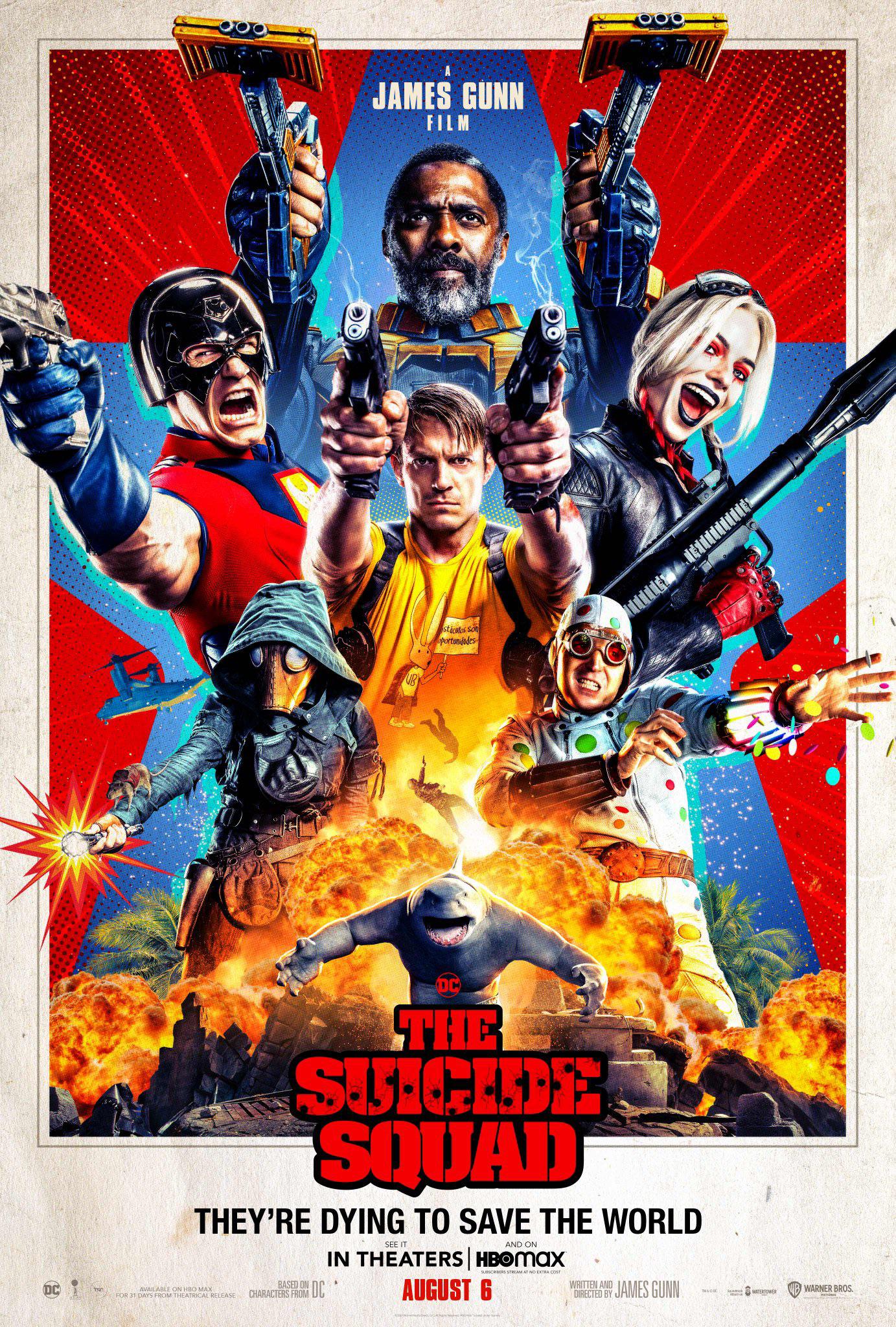


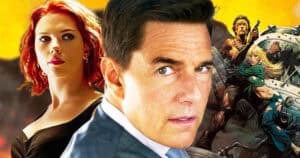
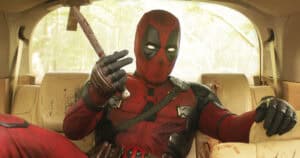
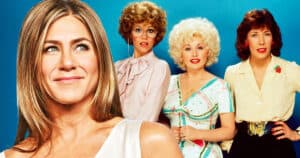
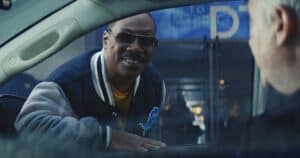
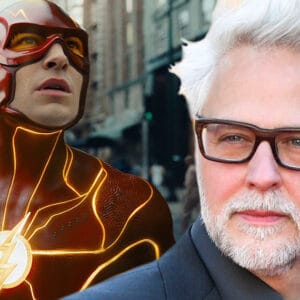
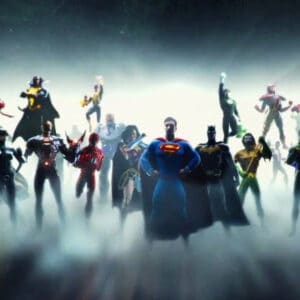
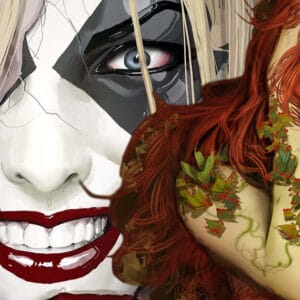
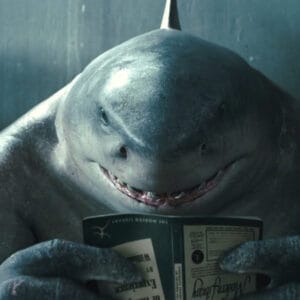
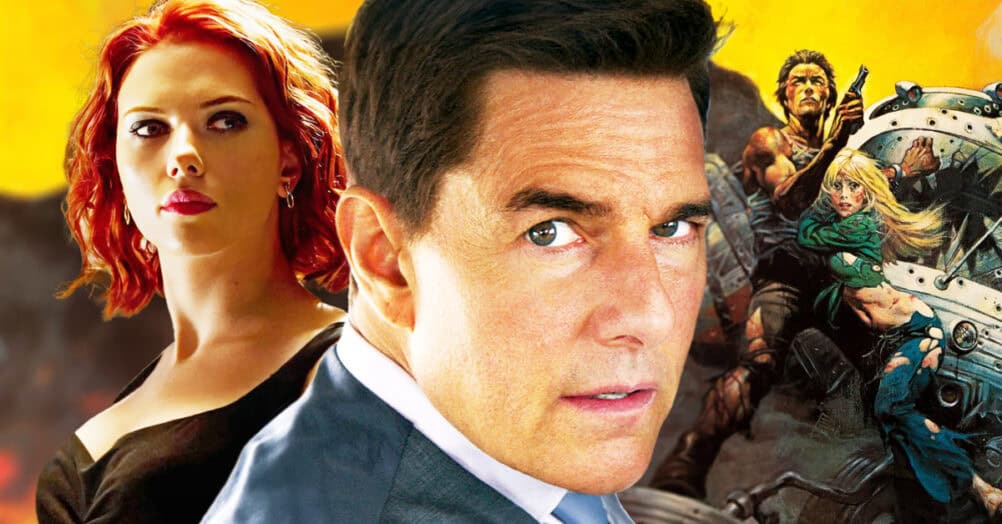
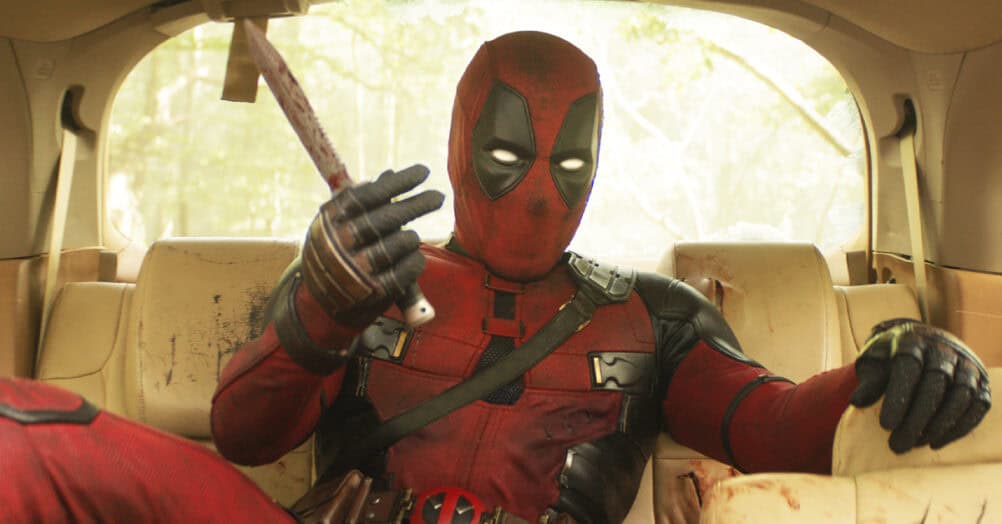

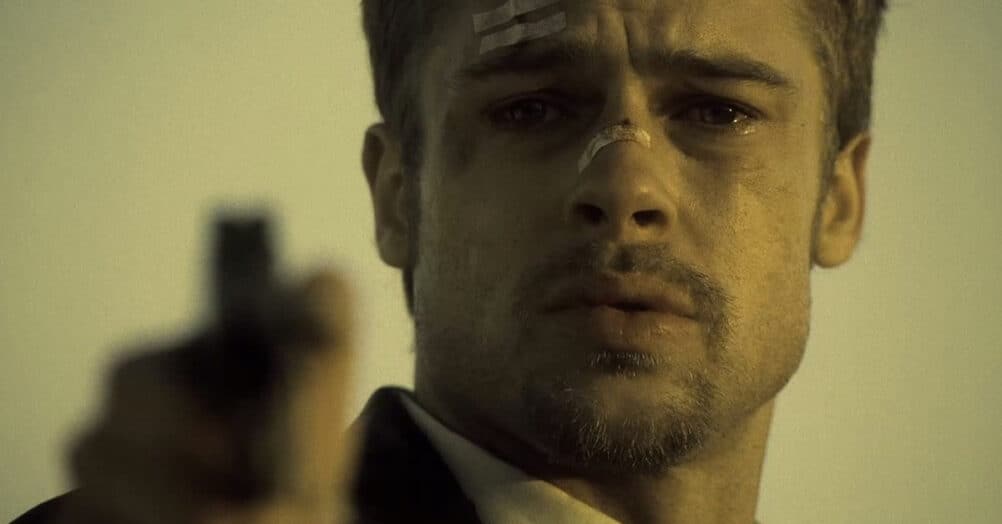
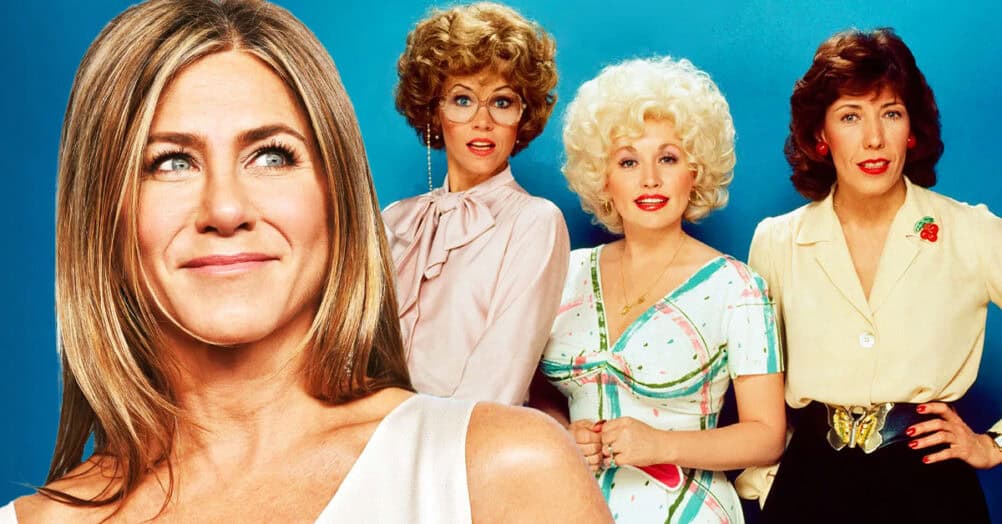
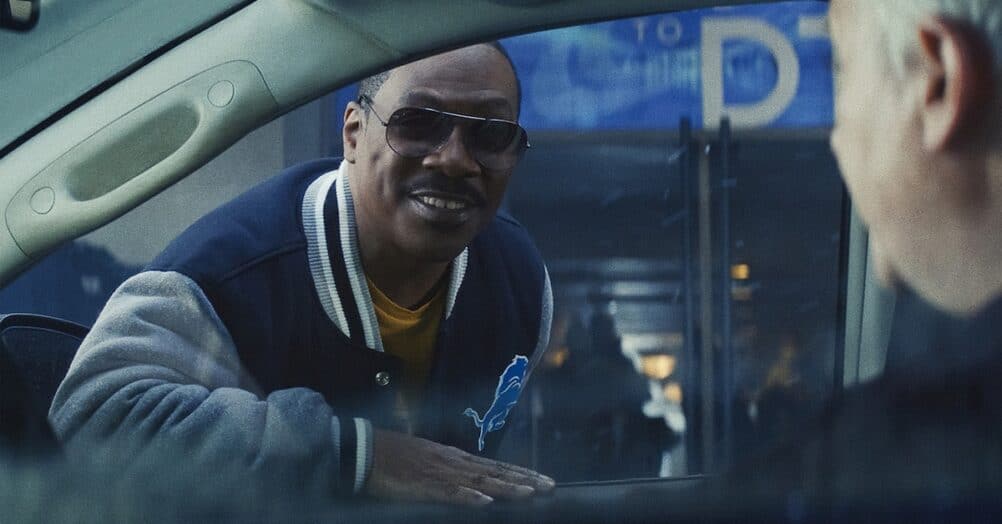
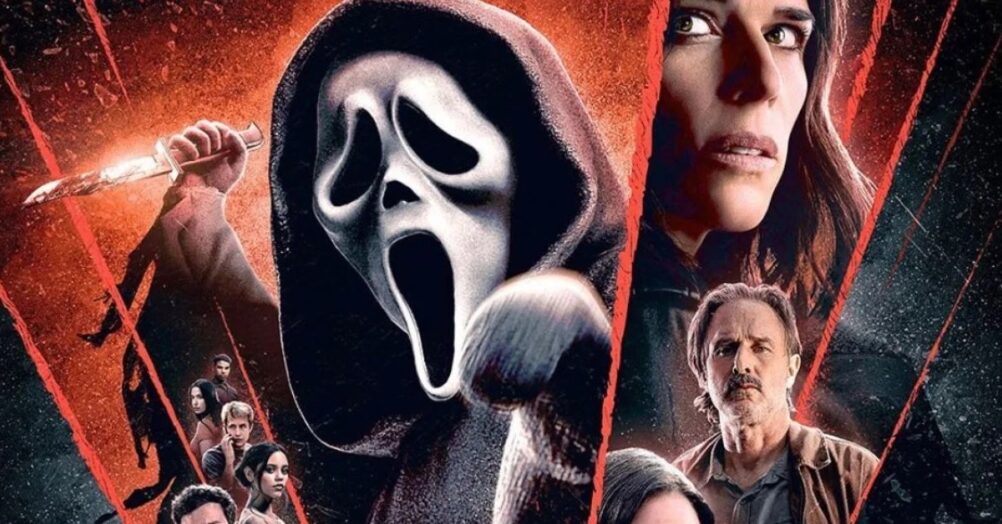
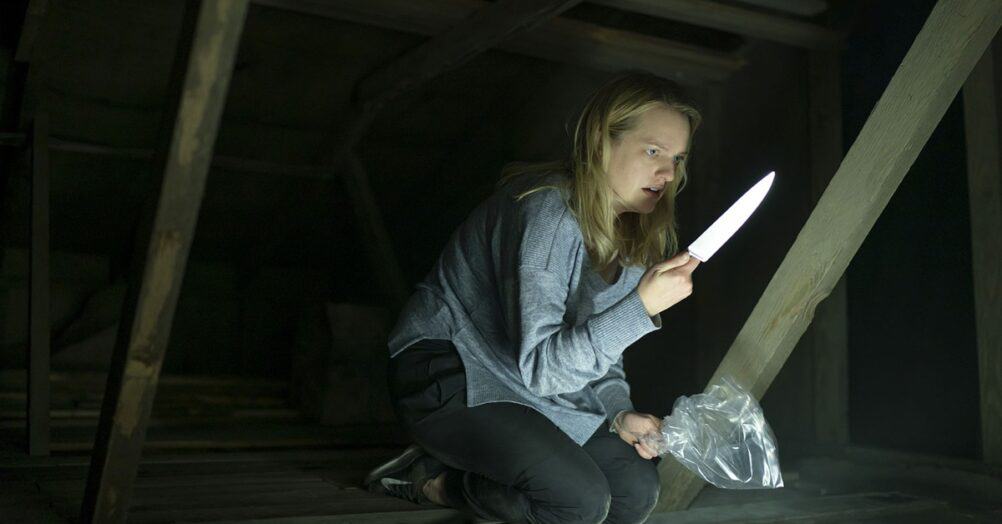
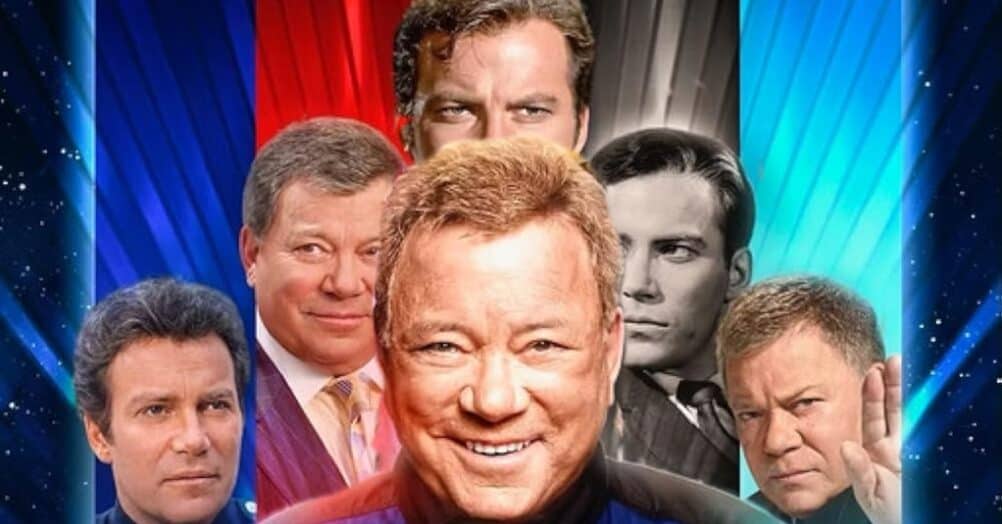

Follow the JOBLO MOVIE NETWORK
Follow us on YOUTUBE
Follow ARROW IN THE HEAD
Follow AITH on YOUTUBE